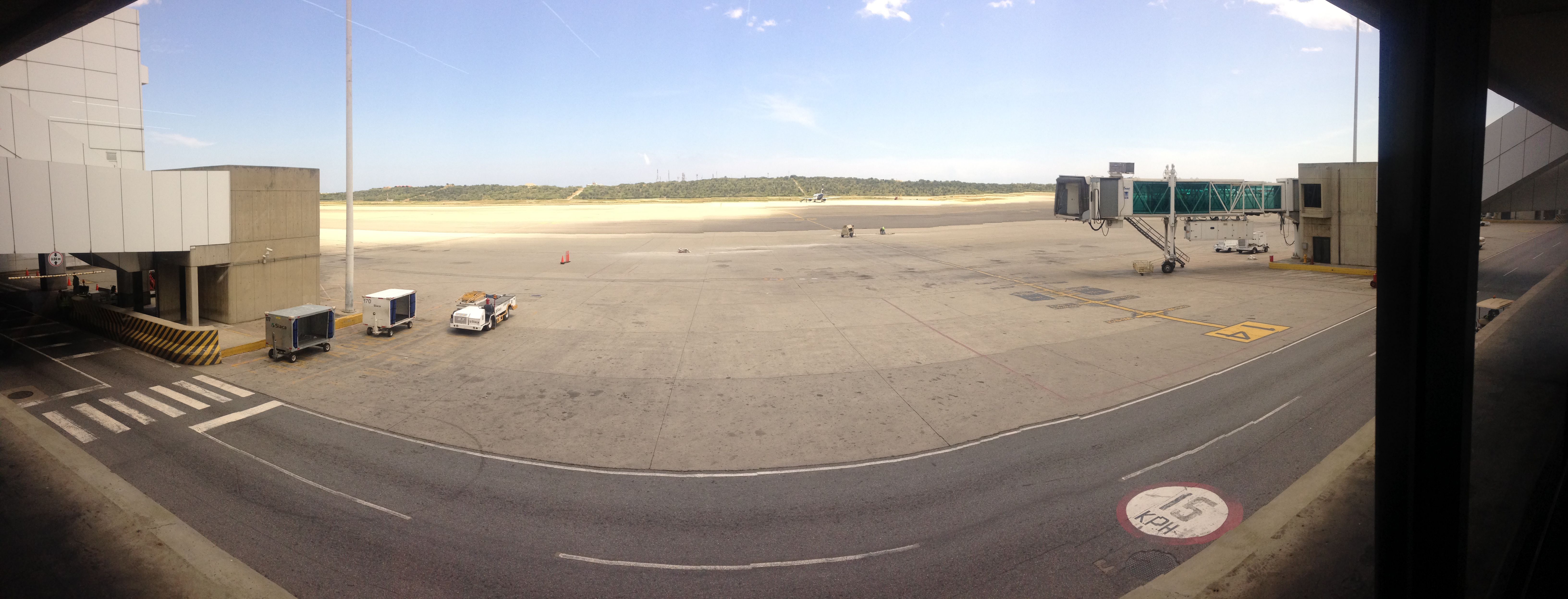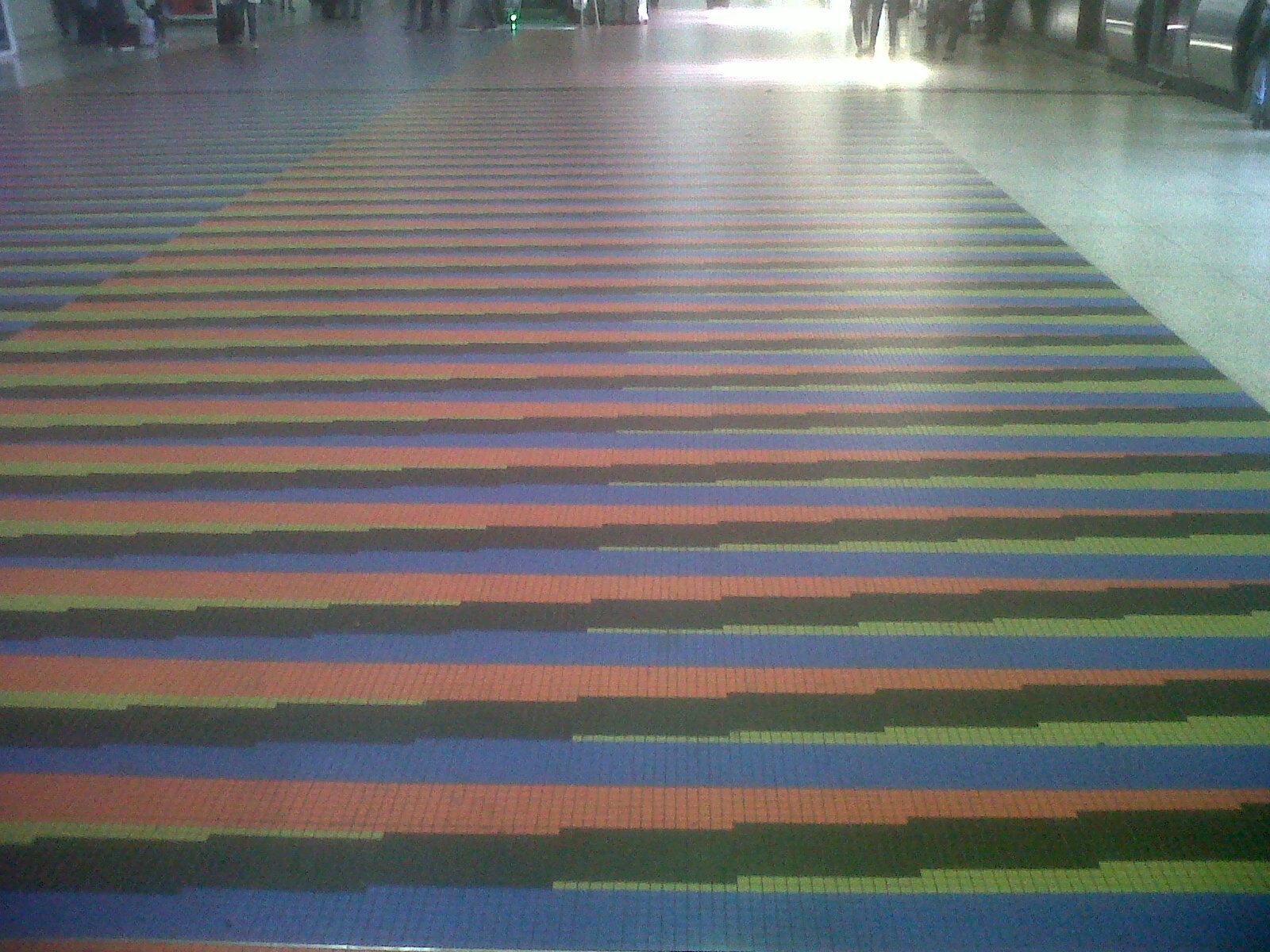MAIQUETÍA, Venezuela—The growing crisis in Venezuela has created a systemic wave of corruption which can be felt the minute you set foot in the territory. The Simón Bolívar International Airport is Venezuela’s main gate to the tropical territory.
Since spring 2017, the air conditioning has been dysfunctional. Maria Lopez, who works at the counter of an airline, told us she is not aware of plans to have it fixed.
“I had to bring a portable fan to work because the temperature is unbearable,” she explained.
As oil prices dropped in 2014, maintenance of public services—including the airport—decreased. The airport is just one of many. Households also suffer from constant cuts of water and electricity.
The heat is not the only cause for discomfort. The overreaching presence of the National Guard (NG) will test your patience. The check-in process is long and unpleasant. With only 12 operating airlines in the airport, the check-in lines tend to be long.
While waiting, a NG approaches passengers asking them about their destination and the number of people in their group. Many are asked to open their suitcases for inspection.
At the time of check-in, many travelers have already spent at least 30 minutes in the hot air of the airport while carrying all their luggage.
An NG quizzes passengers before they pass through security. They take off their shoes, place their carry-on bag on the scanner, and then pass through a metal detector. After that, once again, the NG will ask about travel plans.
In addition, people are frequently asked to open their carry-on. Food (which is allowed) is frequently confiscated by the Guard.
“They took my Oreos and opened them one by one for no reason,” 41-year-old passenger Gabriela Perdomo said. “I had to throw them away.”
Before the passenger reaches the customs official, the NG asks once more about travel plans (that’s four times now if you’re counting).
The officials will pat you down (because apparently, the x-ray machine is not enough). The frisking is done by a female or male depending on the gender of the individual being frisked. Here is where things get touchy. Two of the women who were interviewed told us that they were touched in their private parts.
“It was humiliating. The guard just went ahead and touched me between my legs,” Perdomo explained further, “I felt violated.”
This pat-down is not explained or required in the airport security procedures. Many of the travelers are surprised when they face this situation.
Mario Urdaneta, a passenger who traveled with his family to Bogotá on July, told us that the whole security procedure is ridiculous. “I had a razor, several needles, and a crystal bottle full of perfume in my bag and I was not stopped,” he said.
After all this, travelers finally get to pass through customs, sit down, and wait for their flights. But a lucky few get called to open their bags (again). If this is the case, they are taken to the runway level and are asked to open their luggage. At the end of this process, they are welcome to sit down and wait in the heat of the airport for their flight.
However, worse than departing is arriving. Not only is there an existing fear that your bag will get opened and that your stuff will get stolen before it reaches you, but there is also the fear that you will once again be stopped by the NG.
Nicole Redondo, a mother of four, was returning from Argentina when she was stopped by the NG. She was taken to a separate room where she was interrogated about her trip and her belongings.
“They wouldn’t tell me why they stopped me” Urdaneta explained. “After a while they finally told me that I had failed to put a phone in the customs declaration form. It was my own phone!”
After four hours, and giving away $20, shampoo, toothpaste and snacks she was bringing, Urdaneta was released.
The lack of maintenance, the long hot waits, and the harassment by the National Guard provide a peek into the systematic corruption present all over the territory.
Departing from or arriving to the Simón Bolívar International Airport is like gambling. If you find yourself there, may the luck be in your favor and may the guards not look your way.
Note: the names of people and organizations were omitted to protect sources’ identities.

